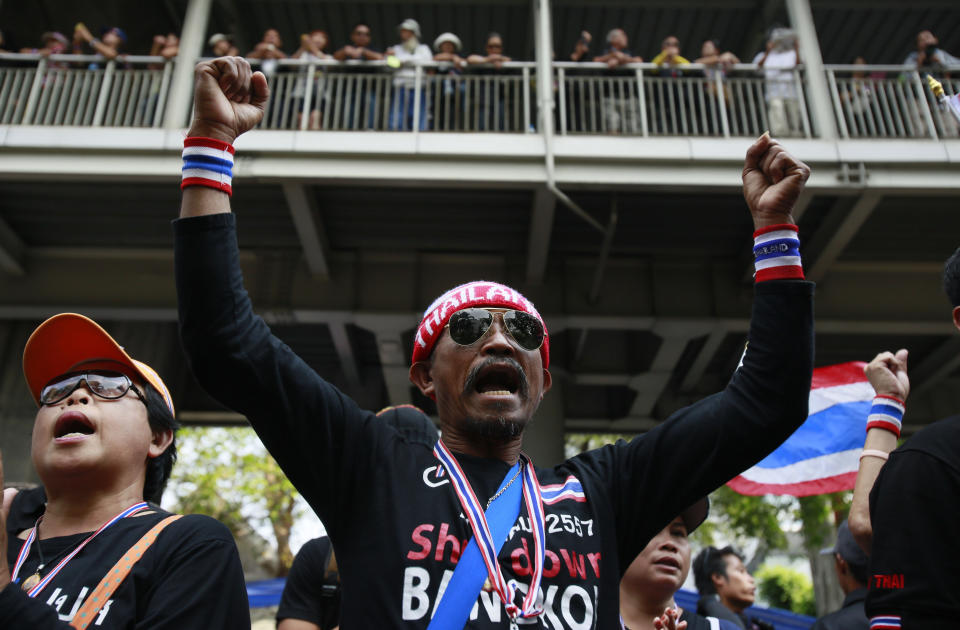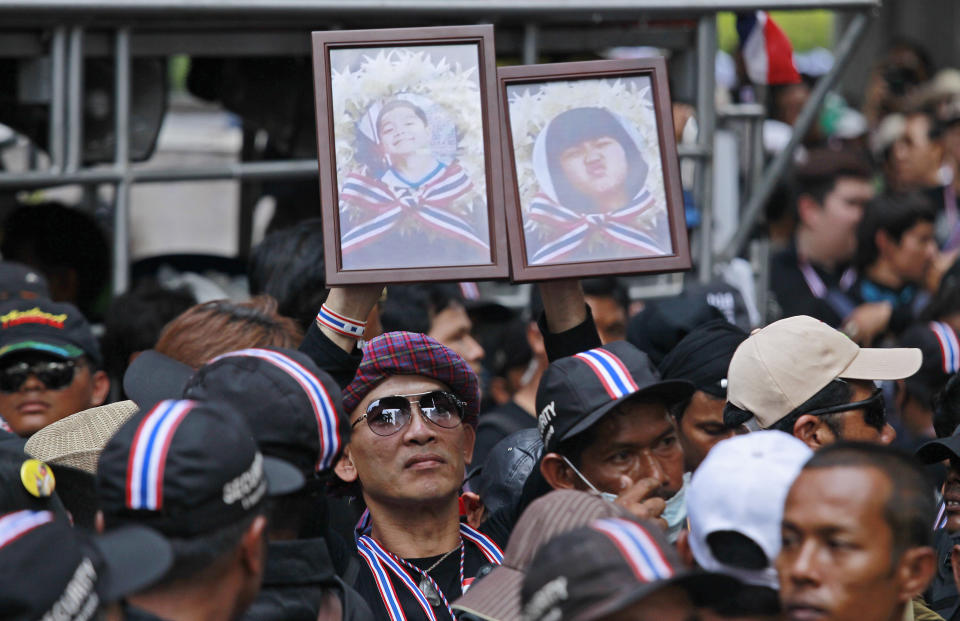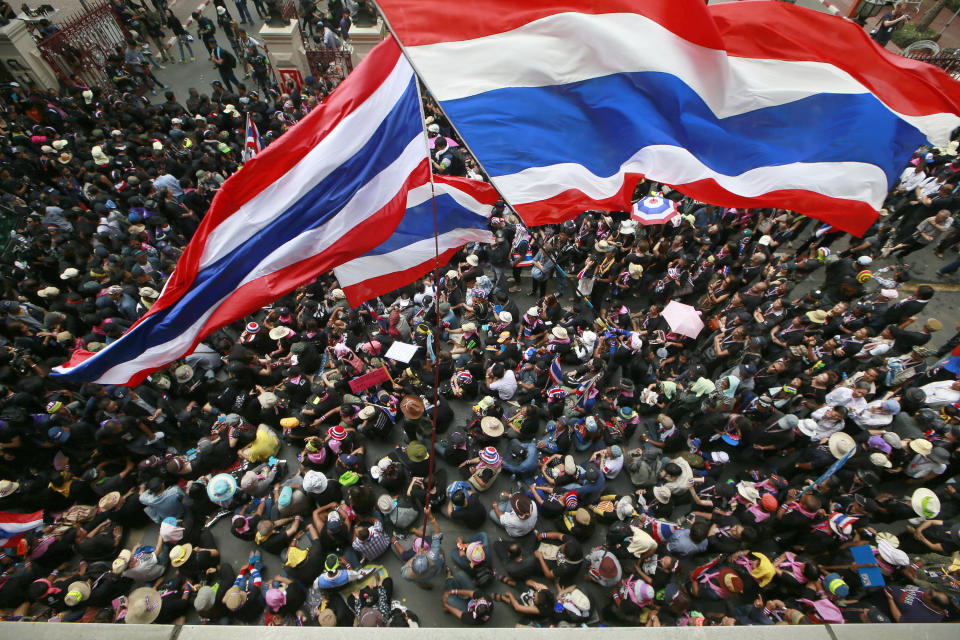Thai leader's supporters chain anti-graft agency
BANGKOK (AP) — Supporters of Thailand's embattled prime minister blocked access to the headquarters of the National Anti-Corruption Commission on Thursday, as the agency prepared to hear charges of negligence against her for allegedly mishandling a government rice subsidy program.
The charges could lead to Prime Minister Yingluck Shinawatra's impeachment after three months of street protests by her opponents and mounting violence that has prompted fresh concerns from the U.S. and the U.N.
Yingluck's opponent want to replace her government with an appointed council that would introduce vaguely described anti-corruption reforms, but she has refused to step down. The anti-graft agency's officials said that Yingluck would send a legal representative to hear the charges because she was visiting her home province of Chiang Mai in northern Thailand.
Yingluck's supporters, called Red Shirts, are copying the tactics of her opponents, who have blocked roads and government agencies since December to pressure her to resign. The Red Shirts believe the anti-graft agency is persecuting the prime minister. They built a stage at their demonstration site and said they will bar the anti-corruption commissioners from their offices Thursday. Several also chained themselves to the office's gates.
The rice subsidy program — a flagship policy of Yingluck's administration that helped win the votes of millions of farmers — has accumulated losses of at least $4.4 billion and has been dogged by corruption allegations. Payments to farmers have been delayed by many months.
She will be given 15 days to answer the accusations against her. She could eventually face impeachment by the Senate or criminal charges if the commission delivers a final ruling against her.
The Red Shirts have generally kept a low profile during the anti-government protests, but as Yingluck's government comes under greater threat of legal action that might force it from office, they have said they will respond in force, if necessary.
The volatile situation has worsened recently, with shootings and grenade attacks on anti-government protest sites. Twenty-two people have died and hundreds have been hurt in the political violence.
The deaths of four children in attacks this past weekend caused widespread shock and sorrow, but seem to have only hardened the positions of both sides.
U.N. Secretary-General Ban Ki-moon expressed his increasing concern and reiterated his condemnation of the recent escalation of violence. He urged the parties to "engage as soon as possible in meaningful and inclusive dialogue toward ending the crisis and advancing genuine reform," U.N. spokesman Martin Nesirky said.
"The secretary-general expresses his readiness to assist the parties and the Thai people in any way possible," he said.
A grenade believed to have been fired from a M79 launcher exploded in the parking lot of public TV broadcaster TPBS on Wednesday night, damaging several cars but causing no casualties. Thai media reported that another two grenades were apparently fired at the nearby offices of the government's emergency peacekeeping task force but failed to explode.
In Washington, State Department spokeswoman Jen Psaki described the attacks that claimed children's lives as "inexcusable."
"Violence is not an acceptable means of resolving political differences. We reiterate our call for all sides to exercise restraint and urge Thai authorities to investigate thoroughly and transparently all recent acts of violence," she told reporters.
The army, which is generally sympathetic to the current anti-government protesters, announced Wednesday it would set up checkpoints in Bangkok to help maintain safety.
Thailand has seen political conflict since 2006, when then-Prime Minister Thaksin Shinawatra, Yingluck's brother, was ousted by a military coup after being accused of corruption and abuse of power. Thaksin's supporters and opponents have since taken to the streets for extended periods in a power struggle.
____
Associated Press writer Matthew Pennington in Washington contributed to this report.





